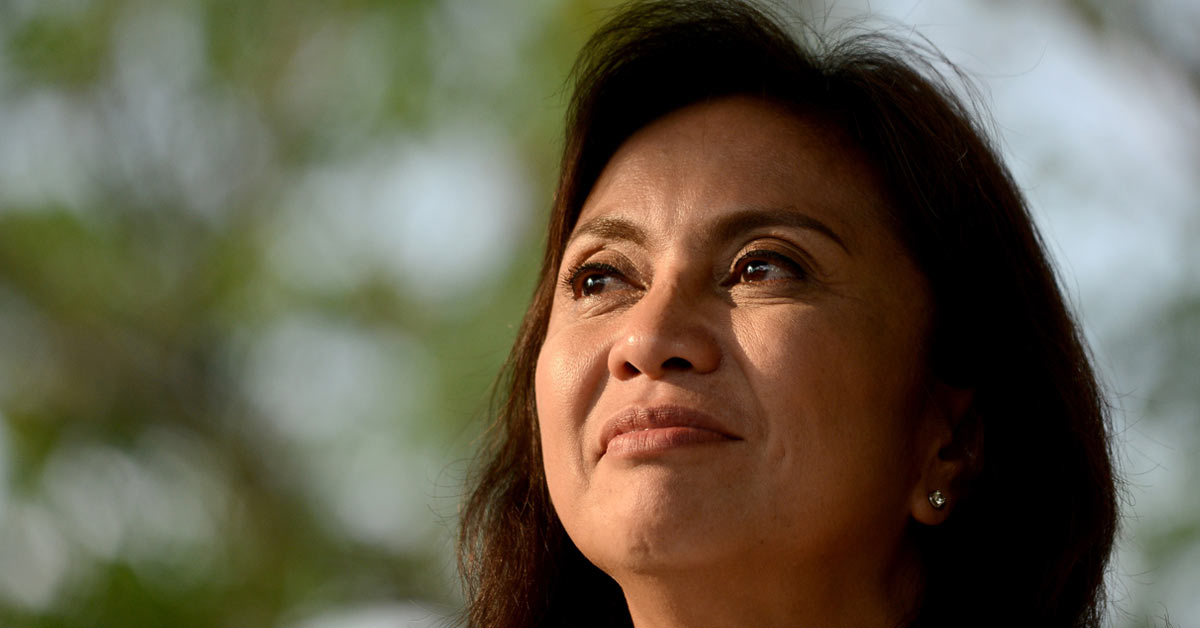Leni Robredo was a neophyte congresswoman in 2016 when she came from behind to narrowly beat Ferdinand Marcos Junior for Philippines vice president. She hopes to repeat the feat in their 9 May rematch for president.
The only woman in a field of 10 candidates, Robredo is the last obstacle to the Marcos family regaining the presidency they lost in 1986 following a popular uprising.
But this time, the former lawyer and economist faces a much bigger gap with Marcos Jr, the late dictator's only son, who voter surveys show is heading towards a landslide victory.
Relentless attacks from President Rodrigo Duterte, who once called her a "scatterbrain", and a vicious social media misinformation campaign waged by pro-Marcos groups have hurt the soft-spoken Robredo's popularity.
Her pledge to "defeat the archaic and rotten style of politics" in the feudal and corrupt democracy has resonated with progressive voters fed up with Duterte's authoritarian style.
Many also fear a repeat of the Marcos dictatorship, when billions of dollars were plundered from state coffers and widespread human rights abuses were committed.
"I am often told I am weak because I'm a woman, but I've never shirked from a challenge," Robredo, 57, told a forum in February.
"I am offering a brand of leadership that is trustworthy, competent, industrious and dependable. You will not be fooled, you will not be robbed, you will never be left behind," she said.
"In 2022, the last man standing will still be a woman."
'President Of All Colours'
Volunteers wearing Robredo's pink campaign colour have gone door to door across the vast archipelago nation in an against-the-odds effort to win over voters.
It has sparked comparisons with the people-driven movement for former president and democracy leader Corazon Aquino in the 1986 snap election that led to the ousting of Ferdinand Marcos Senior.
Like Aquino, whose husband was shot dead by state forces in 1983, Robredo was reluctantly thrust into politics after the death of her husband.
Jesse Robredo, a respected cabinet member in former president Benigno Aquino's administration, died in a plane crash in 2012.
Originally a lawyer for poor farmers and battered women, Robredo served a single term in the House of Representatives, where she pushed for laws promoting transparency and accountability.
After winning the vice presidency in 2016 – a result Marcos Jr fought for five years to overturn –Robredo transformed her small-budget, largely ceremonial office into one that fed the needy, empowered women and helped typhoon victims.
But she earned the ire of Duterte by criticising his deadly drug war and opposing his plan to bring back the death penalty.
She also challenged his decision to allow the embalmed body of Marcos Sr to be buried at the national heroes' cemetery.
In the Philippines, the vice president and president are elected separately.
After months of pressure from supporters and opposition groups to join the presidential race, she announced a run for the top job on 7 October – two days after Marcos Jr.
"The corruption, the incompetence, the lack of compassion must be replaced by competence and integrity in leadership," Robredo said at the time.
Like the Aquino-Marcos contest more than three decades ago, Robredo is the underdog in the battle against Marcos Jr.
Some analysts say Robredo, who has three daughters, lacks the feisty personality Filipino voters look for in a female leader. She has also been criticised for making her decision to run too late.
Marcos Jr has benefited from an alliance with vice presidential candidate and first daughter Sara Duterte and a years-long social media effort to revamp the family brand.
But a bump in the polls and huge turnouts at Robredo's rallies have fuelled hope among her fervent fans that her campaign is gaining traction.
Vowing to be a "president of all colours", Robredo recently implored her supporters to "embrace everyone" as they tried to woo voters.
"The future of the country rests on us all," she said.
